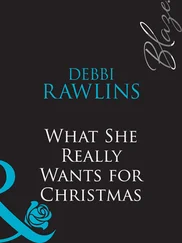To his shame, Matt hadn’t visited for over four years and he’d felt terrible about the fact that when Gearóid had died, he’d been in the middle of a vital campaign and hadn’t been able to make it to Redlion for the funeral. He’d make it up to Gearóid, he promised, by becoming a writer. Turning his back on Bath and his career, albeit only for a year, was his tribute to his maverick uncle.
Virginia Connell stood in the garage of her new home in Redlion, looked at Bill’s golf clubs and smiled wistfully. She’d hated those bloody things all their married life. Well, maybe not hated but certainly felt irritated by them. Every weekend, come rain or shine, Bill had played golf. A brilliant man, he never managed to remember anniversaries, parties and dates she’d put in his diary months before, but thanks to some male instinct, he never forgot an arrangement to play golf.
They’d never really argued about it. Virginia had been very self-sufficient; you had to be when you had three small children and a husband who worked away from home a lot, she always said briskly. When Bill forgot a date she’d made with him, she’d wag a reproving finger and tell him she’d reschedule when he had an opening in his diary. He’d grin, kiss her and promise they’d go somewhere really exciting, which they never did, naturally. Steak and chips in the local had been a treat. Virginia hadn’t minded. She loved Bill and he loved her in return. That was all there was to it. What did posh dinner dates matter when there was much more to life? She much preferred their quiet evenings in the local dunking chips into garlic mayonnaise to those high-powered affairs where Bill’s business partners insisted on bringing the entire company, plus wives, out to four-star restaurants. Virginia hated those nights where the conversation was brittle, every subject was a potential minefield and where the only fun was watching which of Bill’s partners could pretend to know most about wine.
The food was just as good in the pub and when she and Bill were alone together, they could relax and be themselves.
Over the years, Bill did his best to get her to learn golf. She laughed and said he was only suggesting it so they’d see each other in the golf club instead of blearily in the kitchen in the morning over coffee.
Virginia gently pulled the suede cover from his driver, stroking the polished club head and remembering how delighted he’d been when he bought it.
‘This is space age technology,’ he’d said gravely that glorious Saturday morning in April more than eighteen months ago, before going on to explain how he’d had a nine degree driver before but this one was eleven and a half.
‘And that’s better?’ Virginia had teased as she made them both tea.
‘It’s about the degree of loft…’ Bill had begun to explain before he noticed her grinning. ‘What am I explaining it to you for, you philistine,’ he laughed. ‘ Some wives take an interest in their husband’s game.’
‘Yes, and some husbands get home occasionally,’ she retorted. ‘I’m thinking of having an affair if you don’t get home tonight before eight. Would you mind?’
Bill pretended to consider this, angling his grey head to one side and screwing up his brown eyes. ‘Could you have an affair with the golf pro?’ he suggested. ‘Then I might get preferential rates on lessons.’
‘No problem, darling,’ Virginia smiled. ‘Biscuit?’
He didn’t get home before eight that night. He didn’t get home at all. He’d crashed the car on the twenty-minute drive home and the only thing to remain unscathed were his clubs, safely in the boot.
The front of the car was destroyed, as was her darling Bill. But he’d never felt the pain of the crash: he’d died from a massive heart attack, they told her. As if that made it better.
The police thought she’d like the clubs. Virginia threw them into the garage with fury because she needed to hurt something. She was in such horrific, numbing white pain that something or someone else must suffer. Bill’s precious clubs seemed like the only obvious candidates.
The boys, Dominic, Laurence and Jamie, all in their 20s now, had been wonderful, towers of strength through it all. They’d arranged the funeral because Virginia hadn’t been able to. For the first time in her life, the eminently capable and sensible Virginia Connell fell to pieces. She could barely make a cup of tea; she, who was known for her exquisite baking and fantastic Beef Wellington so tender you could cut it with a spoon. People phoned with shocked, murmured condolences and she barely heard them. Once, she left someone hanging on the other end of the phone while she went into the kitchen to try and boil the kettle. She hadn’t managed that either: boiling the kettle and managing to put a teabag in a cup was beyond her. Choosing what to wear in the morning was a momentous task. Remembering to brush her teeth was impossible.
She stopped bothering with her hair and it hung in dank grey curls around a drawn face that was the same shade of grey. Laurence had insisted on driving her to the hairdresser one day, three months after Bill’s death, shocked when he’d seen how terrible she looked.
‘I can’t go in,’ she said simply, sitting in the car outside the hairdresser in Clontarf with Laurence wringing his hands beside her. ‘What’s the point?’
To add to her misery, a month after Bill’s death, their beloved Spaniel, Oscar, had been run over. Without even Oscar’s warm, velvety body to comfort her as he lay on the bedspread and licked her hands lovingly, Virginia felt there was no point to the world at all.
Time was a great healer, Virginia remembered her mother saying. She didn’t agree precisely. Time didn’t heal, it numbed. Like a good anaesthetic, it made the pain more bearable but it never went away.
She’d never balanced the bank statements or talked to the insurance people about the car or the house contents. Bill had handled all that. When the letters surrounding his death began to flood in through the letter box, Virginia realized just how much Bill had done. She’d often teased him that he was a lucky man coming home to a clean, tidy house where there was always food in the fridge, ironed shirts in the wardrobe and plenty of toothpaste in the bathroom. Now, Virginia realized that he’d been just as busy on her behalf as she had on his. She’d never even seen a final demand bill for electricity or handled a single query from their accountant. Now, she had to open all the mail and deal with it herself, inexpertly and bitterly. Bitter because Bill shouldn’t have been gone in the first place. The phone was nearly cut off in those first six months because Virginia had taken to sweeping the mountains of post into a drawer, refusing to look at any of it. She couldn’t cope with the kindly meant letters of condolence and she didn’t want to cope with the stilted letters from the bank, the insurance people and the lawyers. There was so much to do when someone died. She could barely believe it. The awful irony was that Bill had left her a wealthy widow thanks to a huge insurance policy. He’d looked after her even in death. But money couldn’t compensate for the pain and the trauma that went with sudden death.
Bereaved people were suddenly supposed to lay aside their grief and deal with employers, the tax office, government departments, an endless list. It was cruel, cruel and unnecessary. She wouldn’t do it. A horrified Laurence had gone through it all one day, six months after his father’s death, when he’d discovered what she’d been doing.
‘Mum,’ he said wearily as he sat in Bill’s big recliner chair surrounded by opened envelopes and official looking letters, ‘you can’t go on like this.’
Читать дальше












